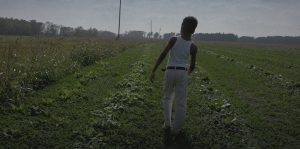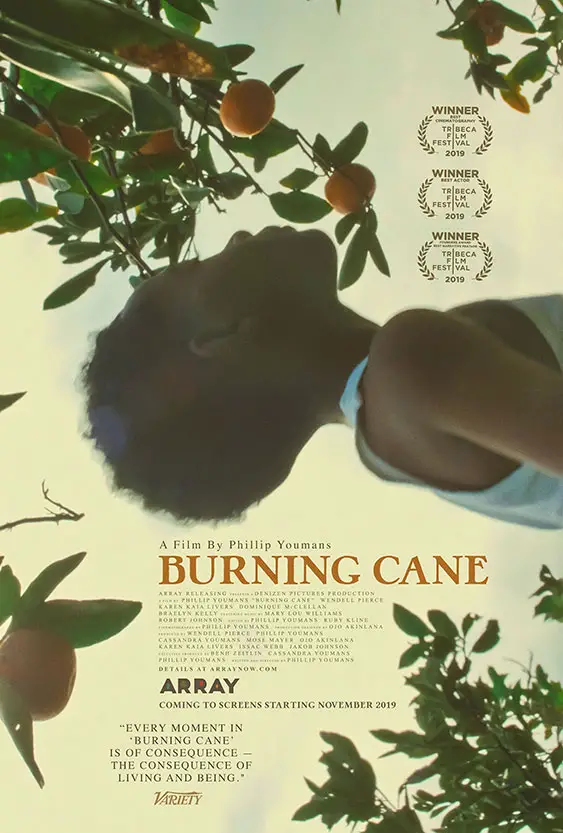
Although some might be disappointed with the result, as it was not what one would have expected, Burning Cane is a pleasing surprise and a movie that will leave many longing for more despite its effective ending. It is also shorter than it could have been, and the mellowness of it all makes the climax, happening at the very end, a good and a bad thing: Eager viewers will feel rewarded for their studious viewing, but it might happen a bit too late for impatient ones.
Similarly, some might argue Burning Cane is more style than substance as it is mostly slow-paced and substantially contemplative in nature. With its broken-down narrative, it is not an easy film to follow, and its atmosphere, one, where secrets are mixed with a sense of mystic in foggy moments, means that viewers might not be sure of what exactly happens to characters. There is also an air of mystery to the movie that will lead to an ending that can be very straightforward for some but can also leave it up to interpretations.
Likewise, one has to admit that it is an uneven feature, that at times, audiences have to put together. Sometimes, we are in the dark, only hearing audio from another scene or voice-over suggesting what could have happened or is happening, and reversely sometimes, we only furtively see what is happening, but nothing is expressly confirmed. It can be frustrating as it feels like we are missing scenes, shots, or explanations and, this ordeal with some of its unsteady visual, makes the film borders an experiment in part. It might not be ideal but makes the whole organic.
“…its lyrical outbursts from many narrated portions, and voiceovers read like poetry, combined with a, possibly deja-vu yet, singular aesthetic associated with its themes. “
On the other hand, the low-key captivating power of Burning Cane resides in its lyrical outbursts from many narrated portions, and voiceovers read like poetry, combined with a, possibly deja-vu yet, singular aesthetic associated with its themes. The cinematography, by Youmans himself, is commendable, alternating meandering scenic camera work or aforesaid shaky one, and more focused (almost too intimate or intrusive) perspectives, with angles bringing to mind hidden-cameras that makes you feel like a fly on the wall or a glass on the table. This intimacy makes for a familiar setting for those who grew up in similar surroundings and/or small rural towns. In addition, the performances are truly great and seemed natural, making the story and occasionally suggesting a documentary style.
The musical choice and background sound are also highlights of the film. The radio, TV, or old-school song playing on vinyl, all give the film a timeless appeal as if the characters populating it are stuck in a bygone era, or little evolution has happened since the time of those songs or shows. It could be a strong and interesting statement, especially as few programs playing might appear to be part of the subtext.
In the end, there is very little connection to the burning canes we see in the opening, but one cannot help but wonder what the relations and effects of burning crops on local populations or its contribution to our protagonist’s predicaments are.
Burning Cane screened at the 2019 Vancouver Film Festival.

"…a man of God like the Tillman, who made us wonder if he believes what he fervently preaches."

This film had too many loose ends to make any kind of connections to draw a reasonable conclusion, like what happened to Daniel’s wife? Did Helen kill Daniel or herself? And why did Helen think murder/suicide were options? Did the pastor kill his wife in a drunken rage? With all the unanswered questions the film wasn’t enjoyable.
If you seen it from the beginning “Chemicals not working”
So, that tells me she is burning a body in the sugar cane fields.
Son, killed is girlfriend. Son goes home to mom and confessed. Instead of mom turning him in to the police she gets advice from the Preacher man.
She prayed about it before shooting her son in the bed room. That was DEEP! I believed that’s what she was burning in the fields.
In the end??? Who did she shoot ? And did her son kill his wife?
I actually enjoyed the movie… The realism interested me. I am confused about the end howeVer. Did she shoot her son or what happened at the close of the last scene?
I was not at all sure but I too thought that Helen was going to shoot her son Daniel. And I believe the reason is that Daniel has killed his wife, although that’s not clear. I assumed that was what Helen talked about with the Pastor who advised she keep the whole matter private.
I tend to agree with christopher turner. But, I don’t like films that force one to make up his own ending….